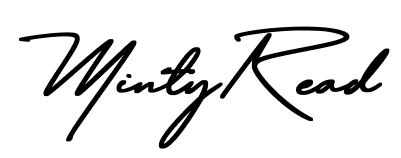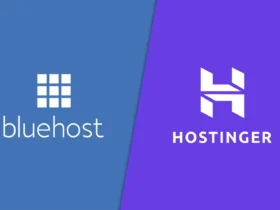Work pressure is an inevitable part of professional life. Whether you’re an entry-level employee or a senior executive, the demand to meet deadlines, manage expectations, and stay productive can feel overwhelming. However, managing this pressure is crucial not just for your mental well-being but also for your long-term career growth. Let’s explore ten practical strategies to effectively deal with work pressure.
1. Prioritize and Organize Your Tasks
When you’re overwhelmed with a list of things to do, everything feels equally urgent. One of the most efficient ways to manage work pressure is by organizing tasks by priority. You can use tools like to-do lists, project management apps, or even simple sticky notes.
Start by identifying the most critical tasks that need immediate attention and set deadlines. Breaking larger projects into smaller, manageable steps also helps reduce the daunting nature of bigger responsibilities. By focusing on a clear priority structure, you can improve your productivity and manage stress more effectively.
2. Break Tasks into Manageable Chunks
Looking at an entire project can seem overwhelming, which increases stress levels. Instead of focusing on the massive outcome, break your tasks down into smaller, more manageable steps. For example, instead of thinking about a whole 20-page report, focus on completing one section at a time.
By breaking things down, you create a sense of accomplishment as you tick off smaller tasks. This also helps prevent procrastination and boosts your confidence as you make tangible progress toward the larger goal.
3. Learn to Say No
One of the most common sources of work pressure comes from taking on too much. Often, in an attempt to please everyone or demonstrate our capability, we overcommit, only to find ourselves overwhelmed. Learning to say no is a vital skill in managing workload effectively.
Politely but firmly decline additional tasks that will stretch you beyond your capacity. If you’re hesitant, try negotiating deadlines or asking for additional resources to balance out the workload. It’s better to commit to a few things and deliver them excellently rather than juggle many tasks and risk underperformance.

4. Set Realistic Goals
Having unrealistic expectations or goals sets you up for failure and increases stress. Be mindful of your time, energy, and resources when planning projects. Break down what can realistically be achieved within a given time frame and communicate that to your team or superiors.
If necessary, negotiate deadlines or adjust the scope of the work. Setting practical, achievable goals reduces unnecessary pressure and keeps you motivated.
5. Take Regular Breaks
When dealing with work pressure, it’s tempting to push through without taking breaks, but this can backfire. Regular breaks allow your brain to recharge and reset, leading to improved focus and productivity when you return to work. Short breaks also provide a moment to step back and gain perspective, making it easier to tackle stressful situations more calmly.
The Pomodoro Technique, where you work for 25 minutes and then take a 5-minute break, is a popular method that boosts productivity while maintaining focus.
6. Practice Mindfulness and Relaxation Techniques
Mindfulness is a powerful tool for reducing stress and improving concentration. When you’re in a high-pressure work situation, it’s easy to get lost in the mental chaos of deadlines and expectations. Mindfulness brings you back to the present moment, helping you manage anxiety more effectively.
Breathing exercises, meditation, or even a 10-minute walk outside can significantly lower stress levels and help you regain composure. Developing mindfulness as a habit allows you to handle challenging situations with greater calm and clarity.
7. Communicate Effectively
Open communication with your colleagues and supervisors is crucial in managing work pressure. If you’re feeling overwhelmed, don’t hesitate to talk about it with your manager. Instead of waiting for things to reach a crisis point, try to voice your concerns early. Discuss potential solutions or seek help in re-prioritizing tasks.
Also, clarify expectations on deliverables and deadlines. Sometimes, work pressure stems from misunderstandings or unclear directives, and proactive communication can help resolve these issues before they escalate.
8. Delegate Tasks
You don’t have to do everything yourself. Delegation is key to managing a heavy workload. If you’re in a leadership position, distributing tasks among your team allows for better focus on your core responsibilities. Even if you’re not in a supervisory role, you can still delegate tasks to team members whose expertise aligns with specific projects.
Delegation not only reduces your personal workload but also fosters a more collaborative and productive work environment. Just ensure that tasks are delegated clearly, with well-defined expectations.

9. Maintain a Healthy Work-Life Balance
Work pressure often escalates when your work life starts encroaching on your personal life. This can lead to burnout, which exacerbates stress and diminishes job satisfaction. Maintaining a balance between your professional and personal time is crucial for long-term well-being.
Set boundaries, such as not checking emails after work hours, or spending quality time with family and friends. Engaging in hobbies, exercising, or even taking time off for yourself allows you to recharge and return to work with renewed energy.
10. Seek Professional Support When Necessary
If work pressure becomes overwhelming and begins to affect your mental health, don’t hesitate to seek professional help. Many organizations offer Employee Assistance Programs (EAP) that provide counseling services. Alternatively, reaching out to a therapist or counselor can help you develop coping strategies for managing stress and anxiety.
Professional support doesn’t mean you’re weak or incapable. It’s a proactive step to safeguard your mental health and overall well-being. Regular mental health check-ins help prevent burnout and keep you performing at your best.
Conclusion
Dealing with work pressure is all about taking proactive steps to manage your time, energy, and resources efficiently. By prioritizing tasks, taking breaks, practicing mindfulness, and maintaining open communication, you can prevent work pressure from becoming overwhelming. Remember, your well-being is just as important as meeting deadlines, and it’s essential to cultivate habits that support both productivity and mental health. Stay organized, stay calm, and most importantly, don’t be afraid to ask for help when you need it.





















Leave a Reply